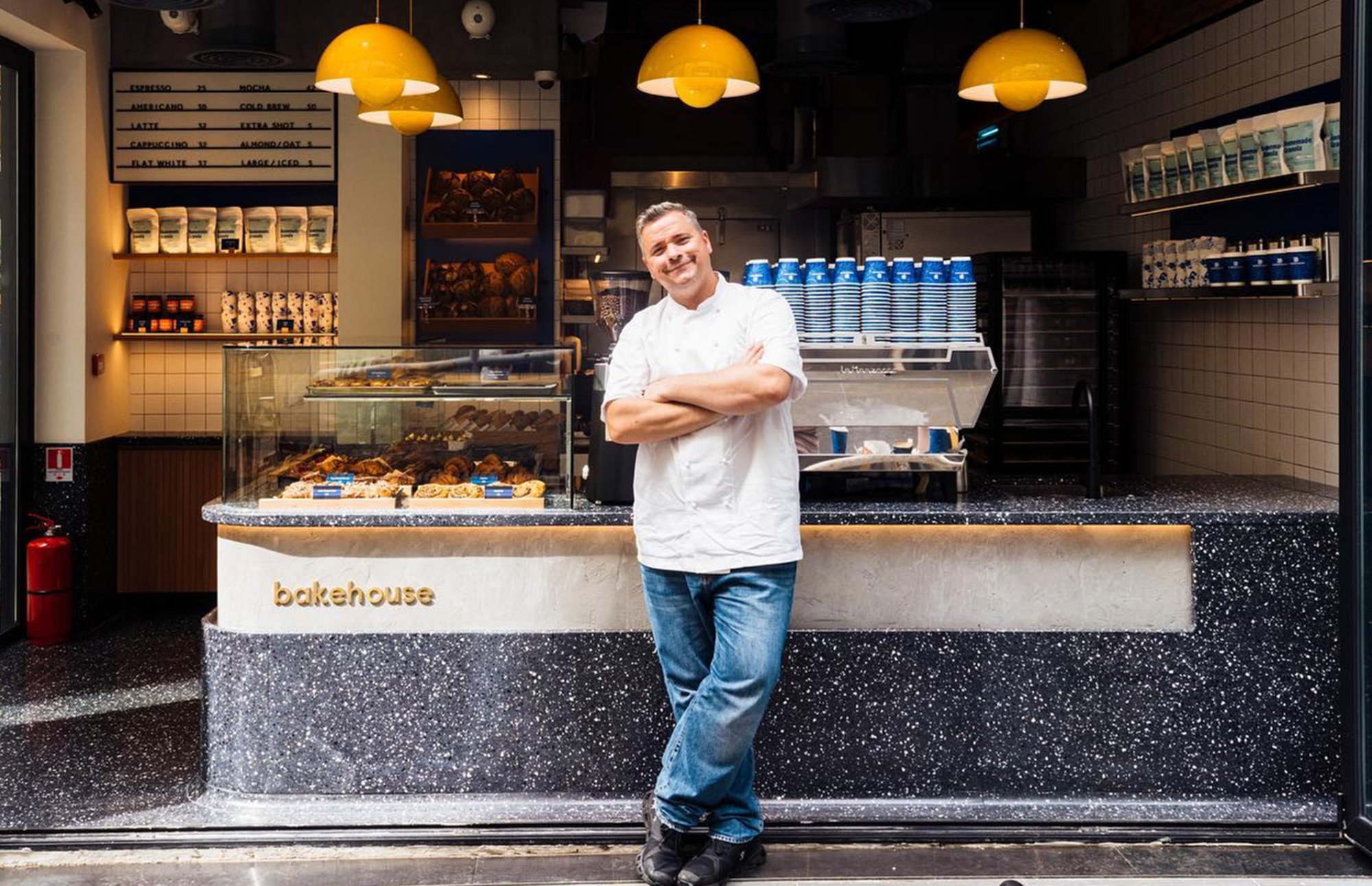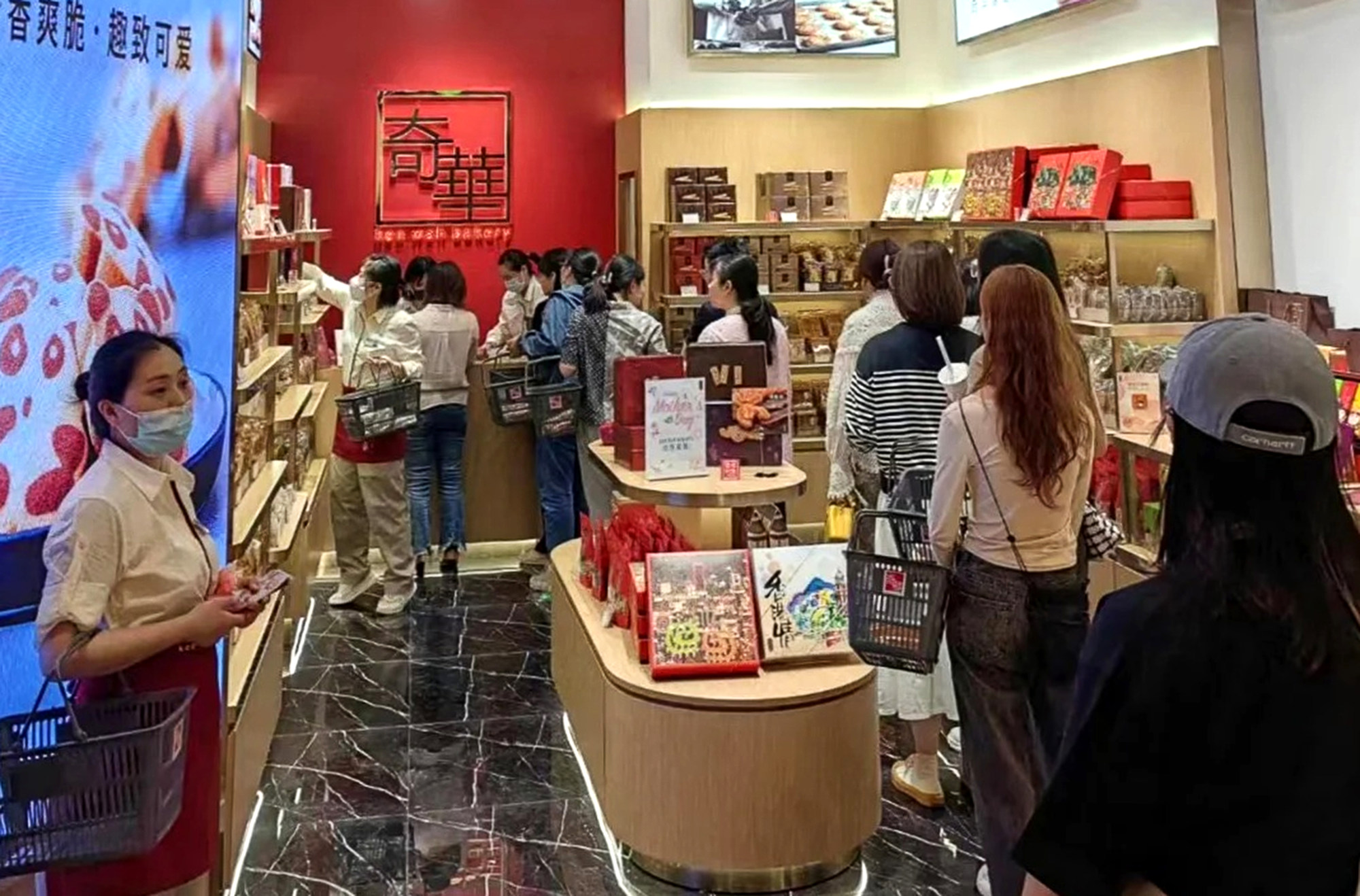
Hong Kong bakeries eye slice of mainland China market as faster customs clearance eases path to send croissants, egg tarts and other fresh treats
- From Tuesday next week, certain goods such as pastries and chocolate will be able to clear customs and enter mainland China without needing to wait for sample test result
- Popular chain Bakehouse and long-time operator Kee Wah Bakery hope new rules will help them deliver made-in-Hong Kong goods to hungry consumers across the border
Hong Kong bakeries selling locally made croissants, Portuguese tarts, egg rolls and biscuits are eyeing opportunities in mainland China as new customs procedures will make it easier to send their fresh, sought-after goods across the border.
Some entry barriers to the vast market will be lowered on Tuesday next week after authorities on both sides of the border agreed to allow certain Hong Kong-made food products to be released from mainland customs as soon as sampling tests were completed.
Under current rules, the goods can only move on once test results are available, which one operator said could delay clearance by a week in some cases.
The arrangement to allow faster clearance will cover non-alcoholic and non-dairy beverages, pastries, bread, confectionery and chocolates.
Hong Kong bakeries told the Post they saw the change as a good opportunity to break into the mainland market or penetrate further.
Bakehouse founder Gregoire Michaud told the Post his bakery chain had already looked into expanding across the border by assessing the different rules and regulations.
His chain enjoys rave reviews on mainland social media platform Xiaohongshu, with his Causeway Bay outlet considered a must-visit spot for fans of freshly made Portuguese egg tarts and croissants, among other goods.
He recalled a recent trip to the mainland to visit a packaging supplier, with staff at his hotel telling him they knew how famous his bakery was because of its long queues.
“It’s not great to be known for a long queue,” he said with a laugh. “But it was very interesting to see our brand had reached the mainland.”
Michaud said the faster customs clearance opened up new prospects, especially to sell directly to consumers in the Greater Bay Area, an economic zone connecting Hong Kong, Macau and nine cities in Guangdong province with a combined population of 86 million people.

He said part of his plans to explore the mainland market included possibly setting up a new store, although regulations might still prove to be a hurdle.
“We are a small bakery producing and selling everything in Hong Kong. So we pay the rents and staff salaries at Hong Kong rates. For us, it would be better if [we were] producing on the mainland because of lower cost on rents and manpower.”
Max Wong Ka-kit, managing director of Kee Wah Bakery, described the new arrangements as a game-changer as it would allow the company to sell products with shorter shelf lives and cut down on transit times.
“Transport crew members currently need to stay at customs until product samples obtain test results. The process can take as long as a week as authorities are not only testing a few samples for just one manufacturer,” Wong said.
“That prevents us from selling some products such as century egg pastries that need to be eaten as soon as possible, as we don’t use preservatives in our products. Pastries such as ‘wife cakes’ will be less fresh if tests take longer.”
Kee Wah, founded in 1938 and well-known among mainland shoppers for its made-in-Hong Kong products, mainly offers mooncakes and souvenir biscuits through 26 outlets in such cities as Shenzhen, Guangzhou and Shanghai.

Wong said the new rules would also help reduce transport costs as the bakery would be able to deliver more goods per trip, which could help lower its retail prices across the border.
“The price of products sold on the mainland depends on the exchange rate of the yuan and shipping costs. Importing more products can help save on shipping costs, potentially leading to a decrease in the sale price.”
He acknowledged Kee Wah’s price point might be higher than competitors on the mainland, but said buyers had a certain level of confidence in Hong Kong-made goods.
“We have witnessed during the Labour Day ‘golden week’ that many tourists have been purchasing our products. Whether it’s due to a preference for the taste or a trust in the brands, it remains attractive and competitive in the mainland market,” he said.
The categories of food covered in the new arrangement were valued at HK$2.84 billion in 2023, representing 56 per cent of the total value of Hong Kong-made food exported to the mainland.

